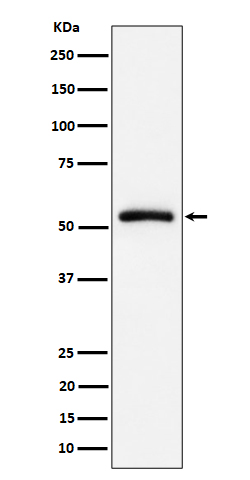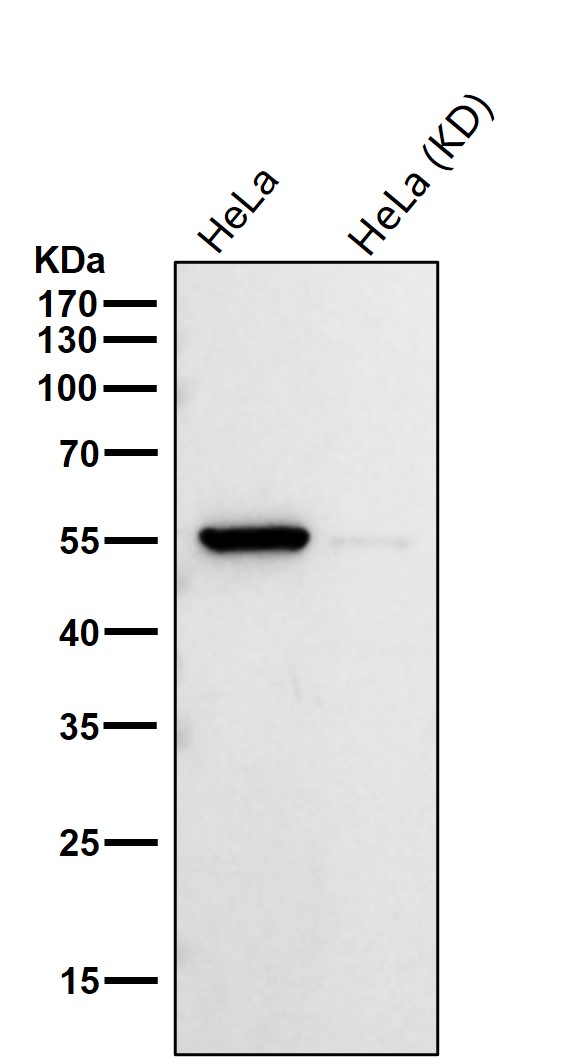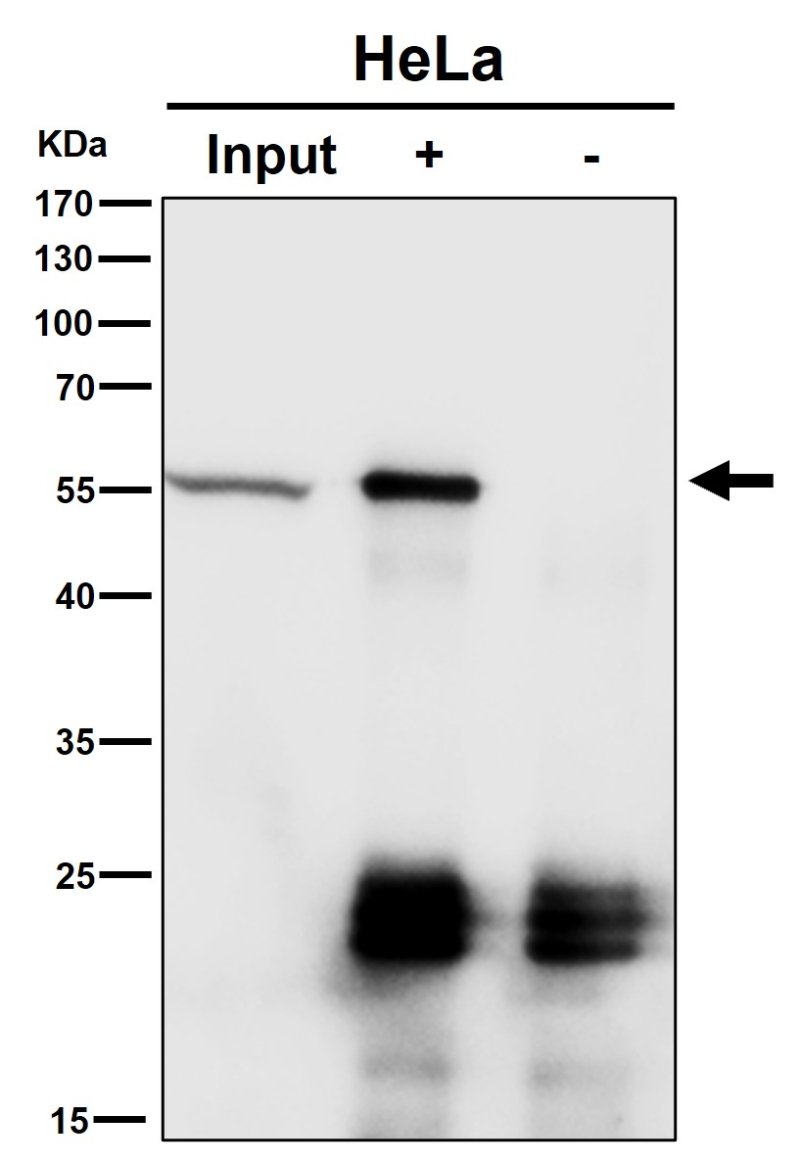


| WB | 咨询技术 | Human,Mouse,Rat |
| IF | 1/20-1/50 | Human,Mouse,Rat |
| IHC | IHC:1/100-1/200;IHF:1/50-1/200 | Human,Mouse,Rat |
| ICC | 1/50-1/200 | Human,Mouse,Rat |
| FCM | 咨询技术 | Human,Mouse,Rat |
| Elisa | 咨询技术 | Human,Mouse,Rat |
| Aliases | CAP1; CAP1 PEN;;CAP 1 |
| WB Predicted band size | Calculated MW: 52 kDa ; Observed MW: 55 kDa |
| Host/Isotype | Rabbit IgG |
| Antibody Type | Primary antibody |
| Storage | Store at 4°C short term. Aliquot and store at -20°C long term. Avoid freeze/thaw cycles. |
| Species Reactivity | Human |
| Immunogen | A synthesized peptide derived from human CAP 1 |
| Formulation | Purified antibody in PBS with 0.05% sodium azide,0.05% BSA and 50% glycerol. |
+ +
以下是3篇关于CAP1抗体的代表性文献,信息基于公开学术资源整理:
---
1. **文献名称**:*"CAP1 promotes glioblastoma metastasis by stabilizing actin filaments"*
**作者**:Li X, Zhang Y, Zheng Q et al.
**摘要**:该研究利用CAP1特异性抗体,通过免疫印迹和免疫荧光技术,揭示CAP1通过稳定细胞骨架促进胶质母细胞瘤侵袭的分子机制,为癌症治疗提供新靶点。
---
2. **文献名称**:*"Cyclase-associated protein 1 (CAP1) is a downstream effector of B cell antigen receptor signaling"*
**作者**:Mittal N, Gu Y, Pavelko KD et al.
**摘要**:作者采用CAP1抗体进行流式细胞术和共聚焦成像,证明CAP1在B细胞受体信号传导中调控肌动蛋白重组,影响免疫细胞迁移和活化。
---
3. **文献名称**:*"CAP1 depletion enhances SARS-CoV-2 infection in human lung cells"*
**作者**:Wang R, Simoneau CR, Chen J et al.
**摘要**:研究通过shRNA敲低CAP1并结合抗体检测,发现CAP1通过干扰病毒刺突蛋白与宿主细胞互作抑制新冠病毒入侵,提示其抗病毒潜在功能。
---
**备注**:以上为示例性内容,实际文献需通过PubMed/Google Scholar检索确认。建议使用关键词"CAP1 antibody"+"application"或结合具体研究领域(如癌症、病毒感染)筛选最新论文。
**Background of CAP1 Antibody**
CAP1 (adenylyl cyclase-associated protein 1) is a conserved multifunctional protein involved in regulating actin dynamics, cell signaling, and cellular processes such as migration, proliferation, and endocytosis. Originally identified in *Saccharomyces cerevisiae* for its interaction with adenylyl cyclase, mammalian CAP1 retains homology and plays roles in cytoskeletal organization via interactions with cofilin, an actin-depolymerizing factor. CAP1 facilitates cofilin-mediated actin filament turnover, critical for cell motility and morphological changes.
CAP1 antibodies are immunological tools developed to detect and study the expression, localization, and function of CAP1 in various biological contexts. These antibodies are widely used in techniques like Western blotting, immunofluorescence, and immunohistochemistry. Research has linked CAP1 dysregulation to diseases, including cancer metastasis, immune disorders, and neurodegenerative conditions. For example, elevated CAP1 levels correlate with tumor progression and invasive potential in cancers, while its role in immune cells suggests involvement in inflammatory responses.
Recent studies also explore CAP1 as a potential therapeutic target, particularly in pathologies driven by aberrant cytoskeletal dynamics. The development of specific and validated CAP1 antibodies remains crucial for elucidating its mechanistic contributions to cellular physiology and disease, highlighting its importance in both basic and translational research.
×